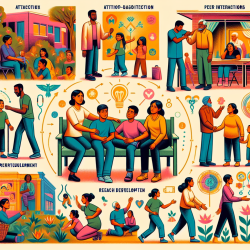The Influence of Power on Human Behavior: What Practitioners Need to Know
Power is an omnipresent force in human interactions, influencing social, political, and economic dynamics. While it can enhance cooperation and group functioning, power also harbors potential for corruption, affecting behavior in ways that are not always obvious. Understanding these dynamics is crucial for practitioners, especially those working with children, to foster better outcomes.
Key Findings from the Research
The study "On power and its corrupting effects: the effects of power on human behavior and the limits of accountability systems" by T.O. Tobore provides a comprehensive synthesis of literature across multiple disciplines, including neuroscience, sociology, and psychology. The research highlights several key points:
- Power is Addictive: The allure of power can lead to addictive behaviors, where individuals strive to maintain and accumulate power, often resulting in nepotism and cronyism.
- Empathy and Compassion: Elevated power levels can reduce empathy and compassion, leading to less sensitivity to others' emotions and needs.
- Unethical Behavior: Power can foster feelings of entitlement and promote unethical behaviors, as powerholders may act in self-interest with reduced accountability.
- Perspective and Cooperation: High power can hinder perspective-taking and cooperation, as it reduces the motivation to engage with others' viewpoints.
Implications for Practitioners
For practitioners, especially those in speech language pathology and online therapy services like TinyEYE, understanding these dynamics can enhance the effectiveness of interventions. Here are some practical steps:
- Encourage Empathy: Develop programs that enhance empathy and emotional intelligence among practitioners and clients, fostering a more compassionate therapeutic environment.
- Promote Accountability: Implement systems that ensure accountability at all levels, encouraging ethical behavior and reducing the potential for power abuse.
- Foster Collaboration: Create opportunities for collaborative decision-making, allowing diverse perspectives to inform practice and improve outcomes.
- Ongoing Education: Encourage continuous learning about power dynamics and their effects, equipping practitioners with the knowledge to navigate complex social interactions.
Call to Action
Practitioners are encouraged to delve deeper into the intricacies of power dynamics and their impact on behavior. By integrating these insights into practice, we can create more equitable and effective therapeutic environments for children.
To read the original research paper, please follow this link: On power and its corrupting effects: the effects of power on human behavior and the limits of accountability systems.










